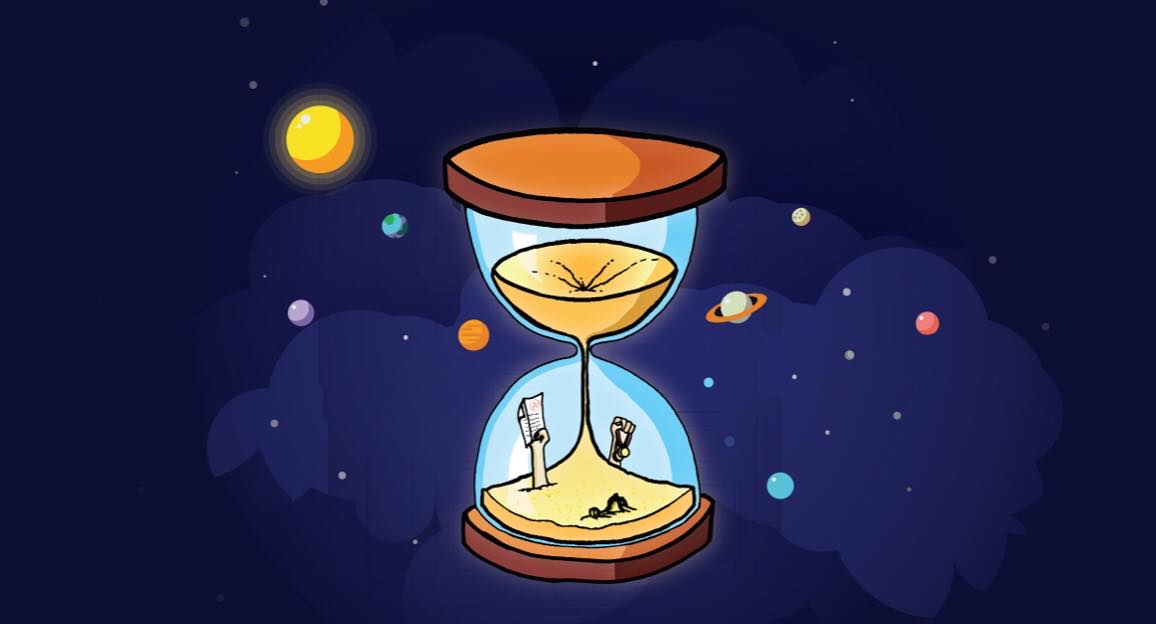

Body of IITR

The predominant intention behind writing this editorial was its being read; to gain appreciation from as many people as possible. Because that is what defines the “success” of an article.
Success: A rather familiar concept, isn’t it?
But consider this: The average human being is a 1.75 m tall living organism with an expected life span of about 80 years, probably sitting on a chair somewhere on a planet that is over 4.6 billion years old and has a radius of approximately 6371 km in a “solar system”. This solar system is organized around the “sun” – an entity 1.3 million times larger than our planet – which is basically just an average sized star among more than a 100 billion stars in a galaxy that’s just one among 2 trillion galaxies in the observable universe.
Just the observable universe.
In the (literally) larger picture, anyone – including you, dear reader – is just like a speck of dust that crosses one’s path in life for but a fraction of a second and doesn’t alter anything.
“How does this even matter?” you may ask. It is here on earth that there is life. All life is tiny. All life is short-lived. Should being able to make a difference in the cosmic scheme of things really be our concern? Should we not aspire to create a more immediate, localized difference, which is far more plausible?
Thousands of species have walked our planet through time; they have come and gone, in a manner similar to the passing of each day. We scarcely remember the people responsible for the progress of our civilization; fire is an indispensable phenomenon that sustains our civilization – electricity, a majority of chemical processes and vehicles, all involve the use of fire. But do we really care enough to enquire who discovered it?
After – or perhaps even before – the human race is wiped out, no one will know about what you did, or how exceptionally talented you were. The chronicle of your life – however magnificent – will be lost in the sands of time.
A billion years from now, the Earth may stay where it is, governed by another species, circling the sun in a galaxy among a lot of galaxies, and no one would care about how many Jews Hitler had killed.
Change is permanent, they say; transience, the unwritten law of the universe. Why then, should we bother at all? Why should we even care to make a difference sitting on this tiny little rock in the universe? What does success come to mean, given that we know the entire logistics of how the world works may change a few hundred thousand years down the line?
There are a lot of erroneous assumptions underlying these quiet musings, primarily that the question of life can be condensed and objectified into a given combination of words: It cannot be.
What if one doesn’t mind the transience at all? What if they simply want to live in the now? And what if they don’t?
The answers to this eternal question of life can be many. They can all be correct and they can all be wrong. The relevance of the answers – and of the question itself – depends solely on your perspective. There can be as many perspectives as there have been humans; perhaps more.
Figuring out yours is a battle that you have to fight alone.